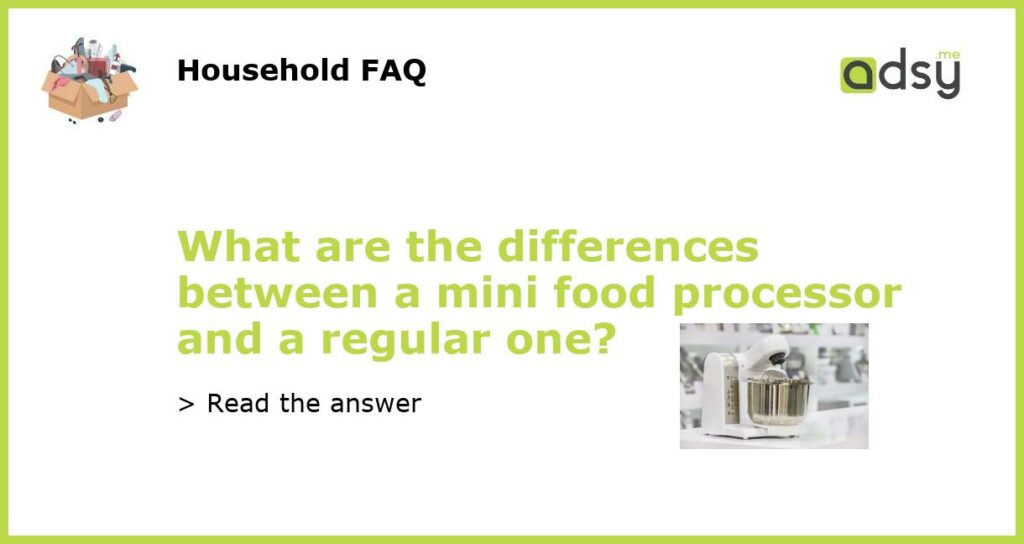Mini food processor vs regular food processor: What’s the difference?
Food processors are one of the most useful appliances in the kitchen. They can chop, slice, shred, and blend just about anything in minutes. But with so many options available, it can be tough to decide which size to get. Mini food processors and regular food processors both have their pros and cons, so let’s take a closer look at the differences.
Size matters: the pros and cons of mini food processors
Mini food processors, also known as small food processors, are typically designed for home cooks who need to chop small amounts of ingredients for a quick meal or snack. They are compact, lightweight and easy to store, making them ideal for those with limited kitchen space. They also tend to be less expensive than regular food processors, which is a plus for budget-conscious cooks.
However, the main drawback of mini food processors is their size. They are often not powerful enough to tackle large or tough ingredients, and their small capacity means you may need to chop ingredients in batches. They also tend to be noisier than regular food processors due to their smaller motors.
Big or small: the pros and cons of regular food processors
Regular food processors, on the other hand, are larger and more powerful than mini food processors. They come with a range of attachments, such as dough blades and graters, and can handle larger quantities of food with ease. They are also quieter than mini food processors and often have more sophisticated features, such as multiple speed settings and pulse options.
However, the main disadvantage of regular food processors is their size. They take up more counter space and are often heavier, making them harder to move around. They are also more expensive than mini food processors, which may be a drawback for those on a tight budget.
Which one is right for you?
When it comes to choosing between a mini food processor and a regular food processor, it really depends on your specific needs. If you have a small kitchen, limited counter space, and only need to chop small amounts of ingredients, a mini food processor may be the best choice for you. However, if you frequently cook for a family or need to prep large quantities of ingredients, a regular food processor is likely a better option.
Ultimately, the best way to decide which one to buy is to assess your cooking habits and needs. Consider your budget, the types of foods you typically prepare, and how often you’ll be using the appliance. By doing so, you can make an informed decision and find the food processor that’s right for you.




![Ninja Professional Chopper [NJ1002UKBK] Stackable, 200W, Black](https://m.media-amazon.com/images/I/41s9Vm+H4yL.jpg)

